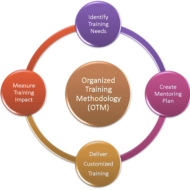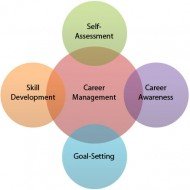Posted by Managementguru in Business Management, Human Resource, Organisational behaviour, Principles of Management, Training & Development
on Mar 22nd, 2014 | 0 comments

Crucial Aspects of a Successful Training Plan Training should be aimed at improving the individual’s skill set as well mind set to gain knowledge about the work environment he will be exposed to, as well as to exhibit the right kind of attitude and behavior towards his peers and superiors. What is the need to train people? It is like molding raw clay into the desired shape and structure to suit our needs. An untrained individual, how well qualified he may be cannot fill the bill. Pros and Cons of Training: Corporate training methods include cognitive as well as behavioral type of training. But the crux of the whole thing is that the trainer must keep in mind the trainee’s present skill set or background and to train him in areas where he lacks verve. Also the pros and cons of each and every method should be analysed before training is imparted. Cognitive training is to theoretically teach trainees the concept of work and how to go about it. This is equally important as learning induces changes in behavior of individuals. Virtual Reality Training: Virtual reality training method is gaining momentum in areas of medicine, engineering and aeronautics where the trainee is exposed to situations artificially recreated for the purpose of simulation. Introduction to QuickBooks 2017 The trainee is benefited by the near perfect exposure he gets through these types of training methods. Simulations in the field of medicine are a real boon to students doing their internship and also to the surgeons performing complicated surgeries. On the job training: On the job training makes the trainees incorporate conceptual learning to be put into effective use. The experience adds value to their career and it is a good way to grow. The trainee also has to understand the significance of being trained that gives him an edge over others. Business games are popular in corporate setup where the members of a team are asked to don different roles or positions of the firm and solve a particular problem situation. This develops sound reasoning skills and instills confidence to handle crisis situations. Concept of training: The very concept of training is to make the individual tailor made for the job he is about to perform; not only the physical aspects but also psychological and social aspects have to be included in the package that will etch a comprehensive pattern in the process of management development techniques. Training improves the effectiveness and efficiency of performance, oriented towards goal setting, develops inter personal relationship and helps in the exercise of knowledge building providing room for improvement. Soft skill training: Soft skill training is a must as communication is the most important aspect that binds any organization for the purpose of delegation, clarification and development. Trainers have to be suitably trained and the common objective for both trainers and trainees would be to satisfy the objectives of the organization and work towards it. Evaluation of training gives you an idea whether your training design has been successful and the implementation satisfactory. Employee Feedback: Feedback from the employees and the ratio of performance standard achieved against the established standards sets the benchmark for the next mile of achievement to be covered. Blogging and Podcasting for Beginners Workshops, seminars, lectures, discussions aid not only the trainees but also the employers of the company to periodically refresh themselves with the ongoing changes and developments in the industry. The bottom line is, training has to bring in not only transitions but also transformations in individuals in terms of improved personality, attitude, behavior and adaptability to better their future...

Posted by Managementguru in Change management, Human Resource
on Feb 28th, 2014 | 0 comments

Career Management How to go about Career Management? Career Management is very essential which facilitates smooth transitions from one level to the next higher level in a profession. You cannot decide what to do unless you know what you are going to do or where you want to be tomorrow. Long term personal goals and professional goals are elemental in setting overall targets. According to Stephen P.Robbins, career is “a sequence of life positions occupied by a person during the course of a lifetime. Setting Goals for an Effective Career Your goals may be Long term Short term Personal or Professional Consider if you are goals are Realistic Whether you possess the skill set Achievable within the set time limit (duration) Based on these goals it is important to make long term and short term career plans. Also write down your Experience Skills and Qualification All these basic but vital things will give you a clear picture as to where you stand and what has to be done to improve your skills. Pic Courtesy: Cupcakes and Cashmere EYE Openers While Setting Personal Career Targets A. What do you want to accomplish from two or three years from now? B. What developments and knowledge can make this possible? C. How do you want to prepare yourself to achieve these targets or in what way you want to improve your skills? D. Is there a necessity for check points in the middle of the progress to make the necessary revisions? Tips to Manage Diversifying Careers Adaptability and flexibility are vital to reduce the stress of redundancy. Anticipate the changes and be prepared for anything at any time Look at the ‘Job Loss’ as an opportunity to pursue a new career that interests you. Career Planning A career will be satisfactory only when it interests the person and provides challenge and not by mere compensation or reward. Each organization should plan and help the individual, but every individual should take interest in his career. Career planning entails evaluating abilities and interests and considering alternative career development activities. The process results in Decisions to enter a certain occupation Join a particular organization Accept or decline new job opportunities{relocations, promotions or transfers} Leave an organization for another job or recruitment. Effects of Career Planning In corporate companies, a typical career planning program might include 1. Career counseling by members of the HR department 2. Workshops to help employees evaluate their skills, abilities, and interests to decide on their career development plans 3. Self directed programs to help the workforce guide their own careers through self-assessment and 4. Communication of job opportunities through job postings, videotapes and publications. One has to remember that career counseling may increase the pressure for managers and in turn the organization, as employees either become anxious about their present level of performance and chances for career advancement or they might use the opportunity to demand more from the firm in terms of pay, promotions etc., Key Career Issues of Employees Dual-career couples: When both husband and wife work, their earnings and stress are in surplus Stressors: Children under the age of six need parental care , but the amount of quality time of parents with that of the children is not at all balanced and this causes a heavy stress for both sides emotionally. Work schedule stressors: This increases as a person rises in an organization, job demands increase, with long hours of work and travel, but little time for family and vacation. Relocation: The increase in the number of dual career couple poses problems for many companies when they try to relocate...




